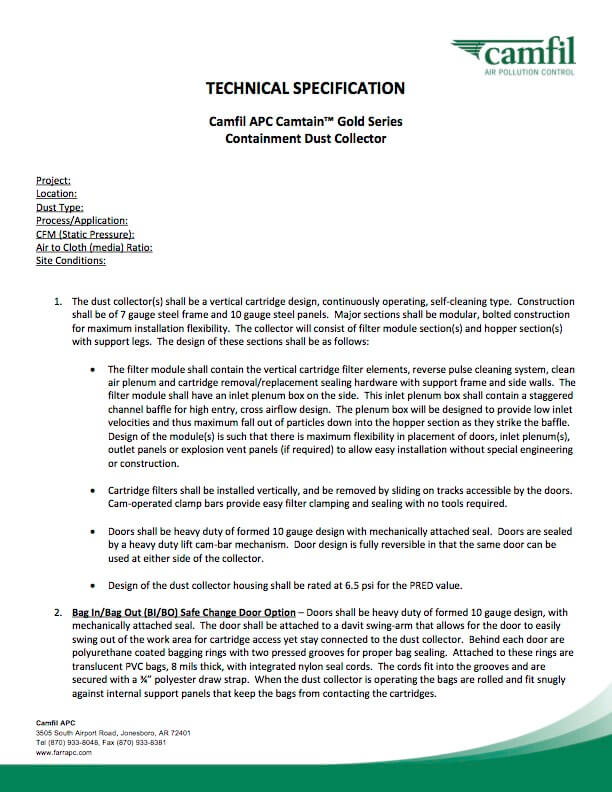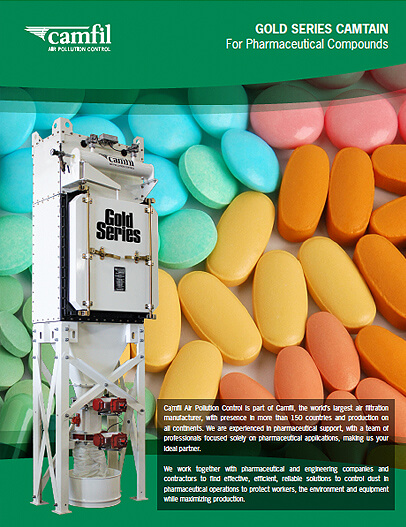Most of the time it's not a return on your investment, it's necessary for the equipment to operate.
Understanding best practices, staying compliant with regulations, and recognizing the industries most impacted by these issues is paramount. Here, we delve deep into the intricate aspects of dust collection, providing answers to your pressing questions about procedures, standards, and the affected sectors. Dive in to equip yourself with knowledge and ensure a safer, cleaner, and more efficient workspace.
Silencers are the most common feature to reduce machine noise.
It will normally be less expensive and are less points to take care of from the discharge of the collector.
Based on the size and height of your facility this can be challenging on how to fit the collector and duct work in the space. If it combustible dust then the placement of the collector is even more critical.
Bag Houses uses bags with cages on the inside of them to keep them form collapsing and Cartridges are pleated filters with a lot more media. Bag Houses normally take up more space than Cartridge collectors.
Yes you need to grease the motor unless it's a sealed motor, greasing of the bearings if it's not a direct drive arrangement, and possibly balance the fan if it get out of balance.
Respiratory issues, eye irritation and possibility loss of life.
Please contact Camfil APC.
Depending on the process that it's handling, but can last for many years (10-20 years).
Hooding, duct work, concrete pads if needed, electrical, sprinkler if needed, replacement filter cost, and handling the discharge of the dust collector (may have a product that needs to go into a land fill or incinerated.
With non combustible dust it's normal lock out and tags out procedures, but with combustible dust it's more complicated.
You don't you get your hooding designed and this will determine the required air flow needed for your dust collection system.
Air to Cloth Ratio's, loading and the type of dust are the most common.
Monitor the pressure drop on the filters and watch the discharge of the collector to make sure the device used doesn't over flow.
Yes, sometime you will have to use a Silencer to reduce the fan noise and the cleaning system may have to use sound deadening devices.
They need Electricity to run the fan and they compressed air to clean the filters.
If designed correctly it will collector the particulate before it gets out in the air space.
Indoor air quality, explosion hazards, being able to see, being able to walk without obstructions.
Mostly, but some material may need to separated by Wet Scrubbers.
If the system is sized and installed correctly it doesn't take a lot of baby setting. This does differ some based on the material you are trying to separate. We use Pressure Differential monitors and the filter need to be changed out based on the Differential Pressure across the filters.
Hooding is first, Ducting from the hooding to the collector is second, Collector is third, and the fan pulls all of these components together.
You have to know the particulate that you are producing, first. You have to know if your particulate is combustible of not.
There are Bag Houses, Cartridge collectors and even a Cyclone is considered a dust collector.
A couple of reasons, one on some machines they can't work unless the process has dust collection in order for the machine to do it's job and two indoor air quality.
It pulls in air that has multiple types of particulate in the air stream and separates the particulate from the air
 Americas
Americas 
